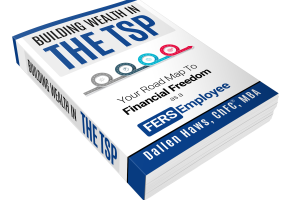Question 1
So I just retired under voluntary immediate retirement. I took a position with another company and am wondering if there will be an effect on my FERS supplement payment?
Answer 1
If you are working at a job or your own business then that income can certainly reduce your FERS Supplement.
Basically, for every $2 you make over $19,560 (I know, this is a very low threshold) your FERS Supplement will be reduced by $1.
So if you are working full time and making more than $50,000 then odds are your FERS Supplement will be reduced to $0.
You can find more about the FERS Supplement here.
Question 2
I turned 60 this month, and I’m studying what to consider when filing for Medicare at age 65.
Based on the 2021 Medicare costs, I see that I might face a big IRMAA penalty, if my federal income remains steady between now and when I turn 65 in 2026. Any strategy suggestions to mitigate this IRMAA penalty?
I have 10+ years federal service and I thought I could take immediate FERS retirement at 62, live off my traditional IRA, and file for both Medicare and Social Security when I turn 65.
My intent in doing this would be to lower my income for two full tax years before filing for Medicare at 65, hopefully below the threshold for the IRMAA penalties. Is my plan crazy enough that it might work, or just crazy and I should avoid this plan?
Answer 2
Without knowing all the details of your plan, it sounds like it would keep your Medicare premiums down assuming your retirement income is going to be less than your current income while working.
However, if you wanted to work longer then you certainly could.
I say this because if your medicare premiums are based on your higher income while working but you are now retired, you can use Form SSA-44 to request that your premiums be based on your current retirement income.
So this would allow you to work as long as you’d like and your Medicare premiums would only be based on your retirement income if you use Form SSA-44.
Question 3
What “if” I plan on separating from 30 yrs 8 months of federal government employment and I would like a full reimbursement of all my funds that I contributed into the FERS system WITHOUT retiring?
Answer 3
You certainly can remove your contributions once you leave service but you probably (99% of the time) don’t want to because the math doesn’t add up.
For example, if you have 30 years of service then you probably paid 0.8% of your salary into the FERS system.
So as a simplified example, if we assume you made 100k for 30 years, that means you only paid (100k X 0.8% X 30) $24,000 into the FERS system.
And with years of service and a high-3 salary of 100k, you would be eligible for a pension of $30,000/year starting at your MRA for the rest of your life.
So the numbers show that it does not make any sense to remove contributions when you can get a pension instead.


